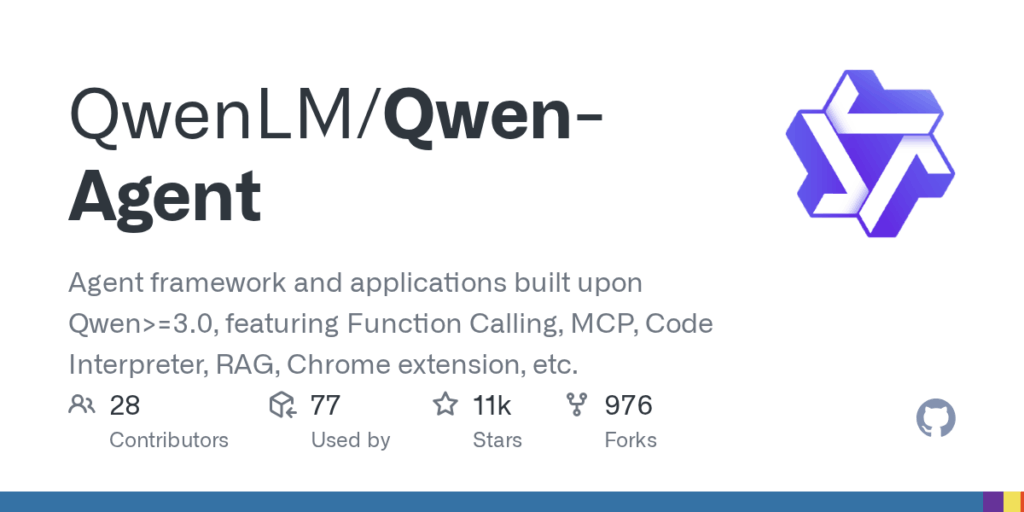Qwen Agent
Basic Information
Qwen-Agent is a developer-focused framework for building LLM-powered applications and agents based on the Qwen family of models. It provides components and patterns for instruction following, tool usage, multi-step planning, and memory integration, and ships example apps including a Browser Assistant, Code Interpreter and Custom Assistant. The project is used as the backend of Qwen Chat and supports deployment against hosted model services or self-hosted OpenAI-compatible endpoints. It targets developers who want modular building blocks for agents, offering both low-level primitives and higher-level agent implementations to compose conversational, tool-enabled, and retrieval-augmented workflows. The repo includes documentation, examples, and optional GUI support for rapid demo deployment.








